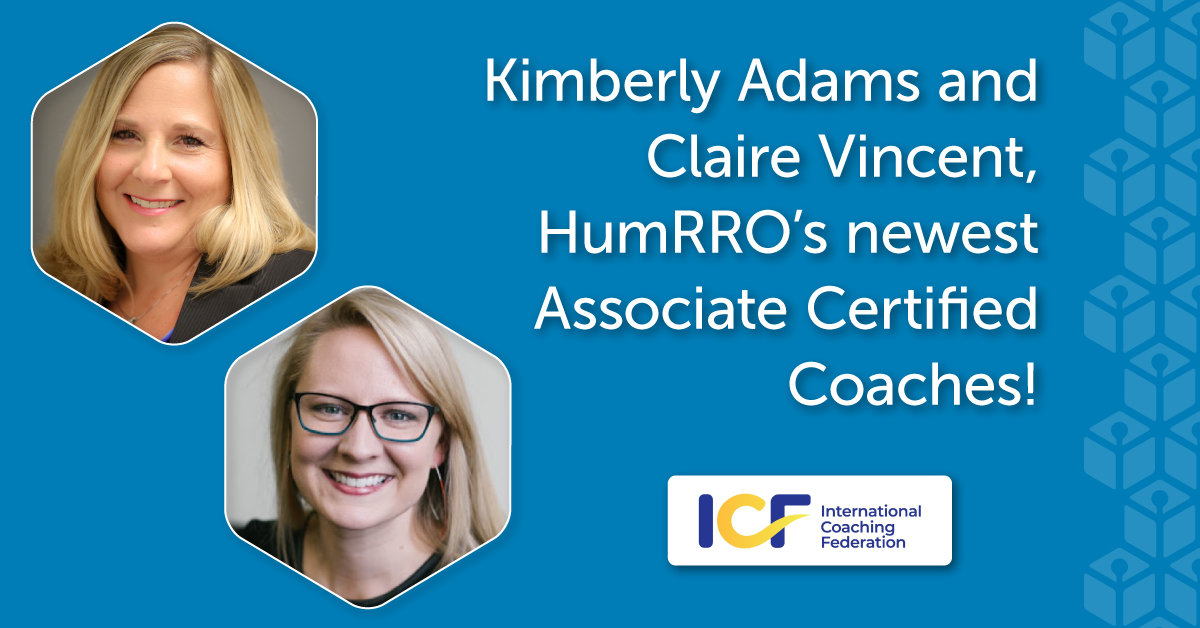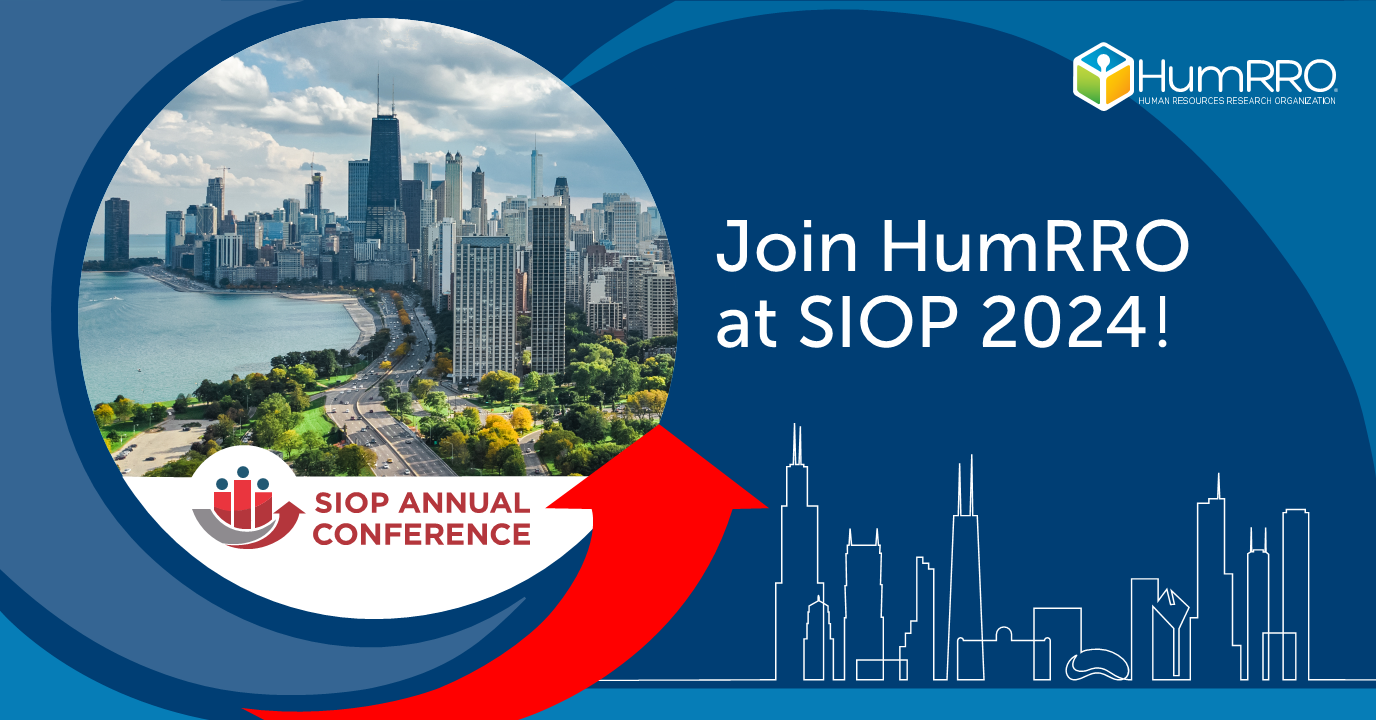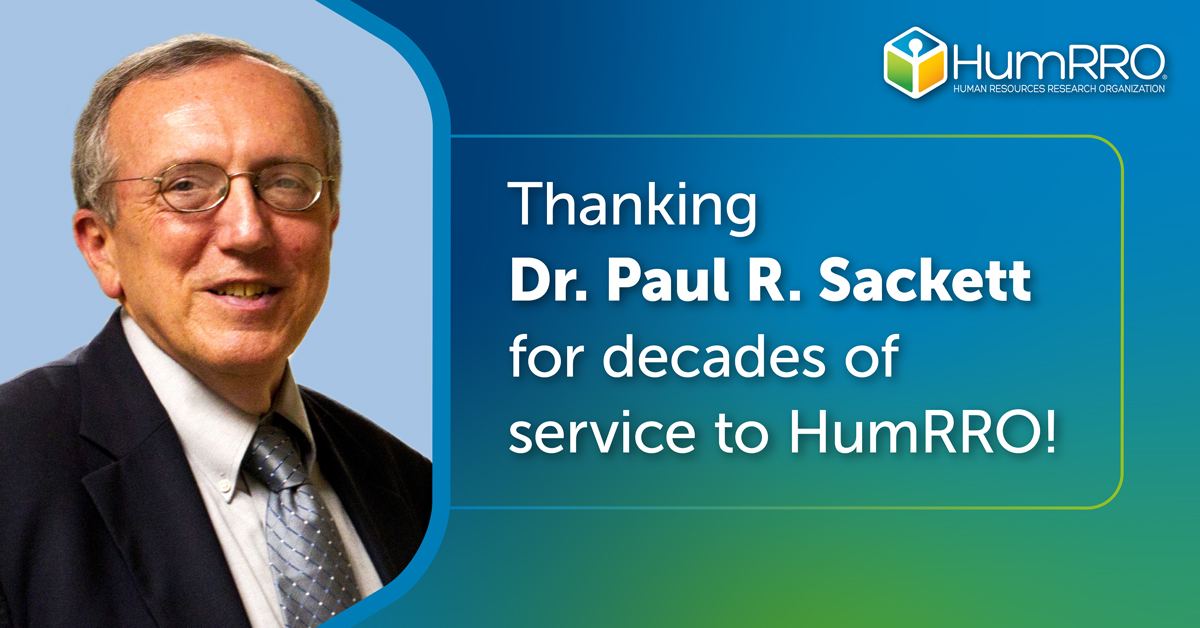Professional development is an important focus at HumRRO for individual career growth as well as to provide excellent counsel to clients and colleagues. Two HumRRO research managers exemplify this value well—Kimberly Adams, Ph.D., and Claire Vincent. Both recently earned their Associate Certified Coach (ACC) credential from the International Coaching Federation (ICF).
An ICF credential is a professional certification signifying that a specific set of coaching standards and requirements have been met. “It is an indication that you are dedicated to upholding strong principles of ethical behavior in coaching,” according to ICF. “An ICF credential shows your clients and peers that you are committed to the coaching industry and to developing yourself as a coaching professional.”
ACC credential-holders have demonstrated, through rigorous assessment, their professional competence in work with clients, and their knowledge and emerging proficiency in the application of the ICF Core Competencies, ICF Code of Ethics, and definition of coaching. The ACC must be renewed every three years.
“Earning the ACC is an important milestone in my coaching journey,” said Vincent. “The certification process not only developed my competence in coaching, but more importantly, my confidence.”
Criteria for earning the ACC credential include:
- Completion of at least 60 hours of coach-specific training that meets ICF guidelines for credentialing.
- Completion of at least 100 hours of client-coaching experience since the start of their coach training.
- Completion of 10 hours of mentor coaching with an eligible mentor coach.
- Submission of a completed application for the Associate Certified Coach credential.
- Pass both knowledge and performance assessments at the Associate Certified Coach level.
In client relationships, the ACC credential helps establish trust and emphasizes the adoption of a coach approach in client interactions. “To love your work is rewarding enough, but it feels even more rewarding to have my coaching knowledge and skills validated and to be able to provide clients an added level of assurance that I have met the professional industry standards,” said Vincent.
For Adams, the credential buoys her work as a manager. “I have been providing guidance and mentorship for career growth for many years, especially to early career professionals,” she noted. “Becoming an ICF-certified coach equips me with new perspectives, skills, and confidence that allows me to support others as they explore and achieve goals for professional and personal growth.”








